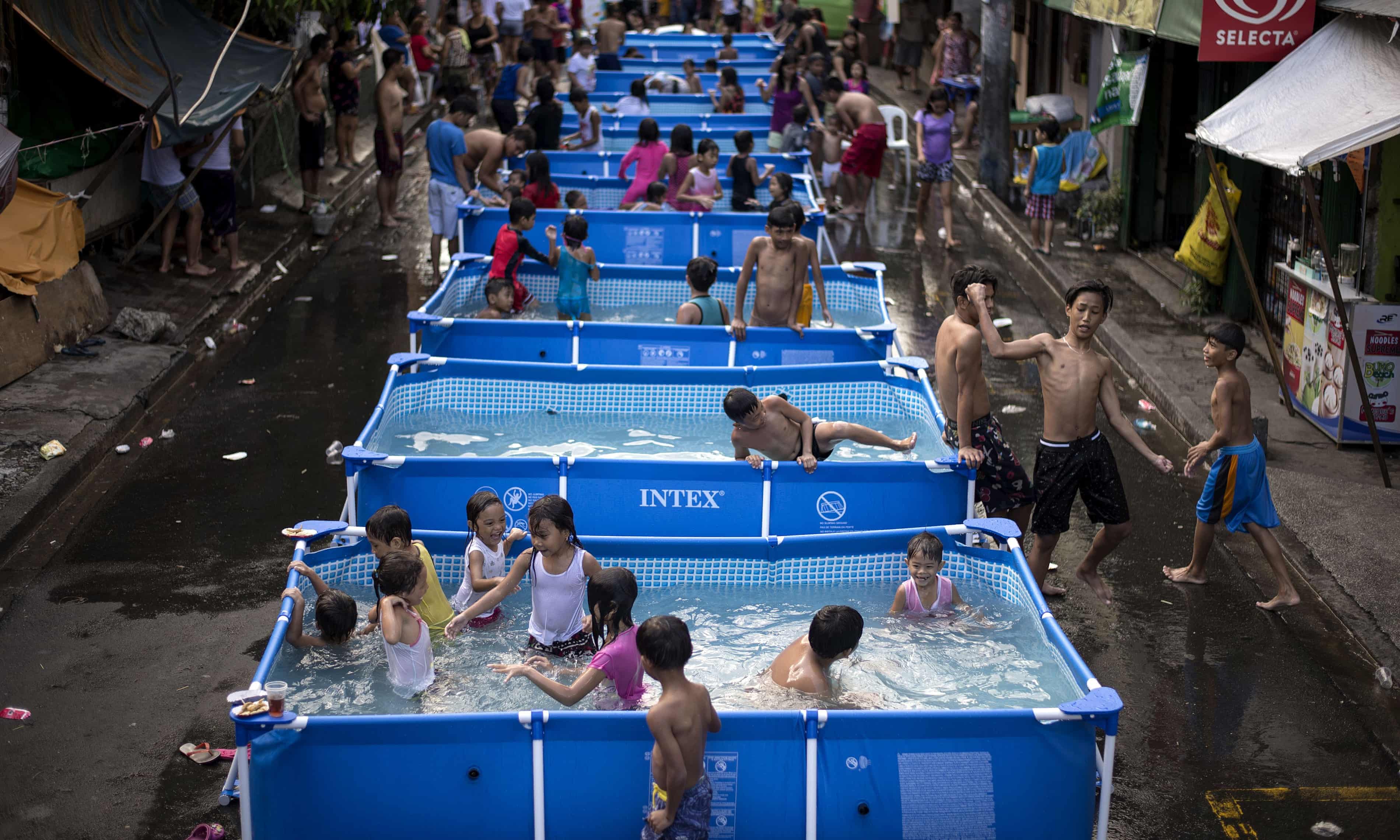
Thousands of schools in the Philippines have stopped in-person classes due to unbearable heat. In Indonesia, prolonged dry weather has caused rice prices to soar. In Thailand’s waters, temperatures are so high that scientists fear coral could be destroyed.
A “historic heatwave” is being experienced across south-east Asia, according to Maximiliano Herrera, a climatologist and weather historian. In updates posted on X, he said heat that was unprecedented for early April had been recorded at monitoring stations across the region this week, including in Minbu, in central Myanmar, where 44˚C was recorded – the first time in south-east Asia’s climatic history that such high temperatures had been reached so early in the month. In Hat Yai, in Thailand’s far south, 40.2˚C was reached, an all-time record, while Yên Châu in north-west Vietnam hit 40.6˚C, unprecedented for this time of year.
The intense heat has also caused havoc in agriculture. In Indonesia, which experienced prolonged dry weather last year, President Joko Widodo resorted to ordering the military to help farmers plant rice when rains finally arrived in December. The cost of rice, a staple food for the country’s 270 million people, rose more than 16% in February compared with last year, according to a Reuters report. Queues for government-subsidised rice have stretched for hours.
In Vietnam, water levels were so low in canals earlier this year that farmers in some areas reportedly struggled to transport their crops. In Thailand, a fall in crop yields will cause farmers’ debt to increase by 8% this year, according to economic analysis cited by the Bangkok Post. In Malaysia, authorities have deployed cloud seeding in areas affected by lack of rainfall.
The effects of the extreme heat also extend into the region’s waters. Assistant professor Thon Thamrongnawasawat, of the faculty of fisheries at Kasetsart University in Thailand, warned this week on social media that El Niño combined with global warming risked destroying coral and fish in the Gulf of Thailand.
“When compared to the start of April in the previous year, in the eastern area, the water is substantially hotter. It’s strangely hot. Even at night, the temperature was a scorching 31.5 degrees,” he said.
“Travelling to Thailand’s seaside soon could become soaking up the sun and dip into onsen. That would be a new slogan,” he said.
If the heat continued for another two or three weeks, he feared coral bleaching could take place. Excessively heated water also threatened the life of fish in local fish farms, and risked creating huge debts for farmers.
There are ways to help, including by reducing global heating, alleviating problems such as marine pollution, caused by rubbish wastewater. “Even so, we still need to be ready to handle and adjust to such rare hot-water occurrences,” he said. “Prepare yourself. The real boiling sea has arrived.”